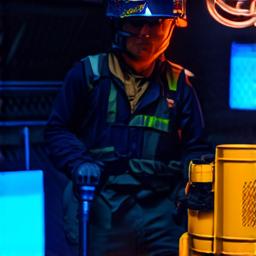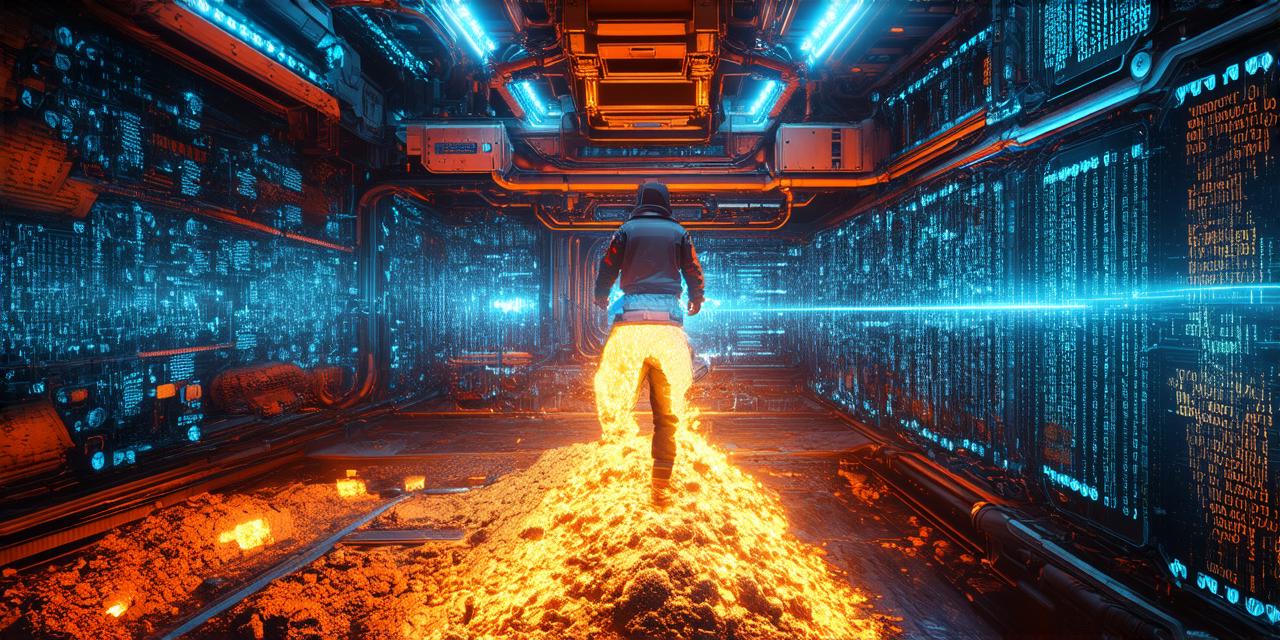Introduction:
Blockchain technology is rapidly gaining traction in various industries such as finance, healthcare, and supply chain management. One of the key components of blockchain is mining, which involves verifying transactions and creating new blocks on the network.
What are Miners?
Miners are individuals or organizations that use their computing power to validate transactions on a blockchain network. They do this by solving complex mathematical equations known as cryptographic puzzles. These puzzles require significant computational resources, which can only be achieved through the use of powerful computers and specialized software.
Mining in Blockchain:
The process of mining in blockchain involves several steps. First, a user submits a transaction to the network. This transaction is then verified by miners who use their computing power to check if it conforms to the rules of the blockchain protocol. If the transaction is valid, it is added to the blockchain and a new cryptographic puzzle is generated for the next miner to solve.
The first miner to solve the puzzle is rewarded with newly minted tokens or cryptocurrency. This reward is known as a mining reward and serves as an incentive for miners to continue working on the network. In addition to receiving rewards, miners also play a critical role in ensuring the security and integrity of the blockchain.
Miners and Consensus Algorithms:
The consensus algorithm is a set of rules that govern how nodes on a blockchain network agree on the state of the ledger. Miners are responsible for implementing and verifying the consensus algorithm. There are several types of consensus algorithms, including Proof of Work (PoW), Proof of Stake (PoS), and Delegated Proof of Stake (DPoS).

Proof of Work (PoW) is the most commonly used consensus algorithm in blockchain technology. In PoW, miners compete to solve complex mathematical puzzles to validate transactions and create new blocks on the network.
Proof of Stake (PoS) is an alternative consensus algorithm that does not require miners to compete for rewards. Instead, nodes on the network are chosen randomly to create new blocks based on the amount of cryptocurrency they hold. This process reduces the energy consumption required by miners and makes it more accessible to a wider range of individuals.
Delegated Proof of Stake (DPoS) is another consensus algorithm that allows nodes on the network to delegate their mining power to other nodes known as witnesses or delegates. These witnesses are responsible for validating transactions and creating new blocks on the network. This process reduces energy consumption and makes it more efficient.
Case Studies:
Let’s take a look at some real-life examples of how miners play a critical role in blockchain technology.
Bitcoin:
Bitcoin is the most well-known cryptocurrency and was the first to use a consensus algorithm known as Proof of Work (PoW). Miners compete to solve complex mathematical puzzles to validate transactions and create new blocks on the network. This process requires significant computational resources and energy consumption, which has raised concerns about its environmental impact.
Ethereum:
Ethereum is a popular blockchain platform that allows developers to build decentralized applications (dApps) on top of it. Ethereum uses a consensus algorithm known as Proof of Work (PoW), but it also plans to transition to a more energy-efficient consensus algorithm called Proof of Stake (PoS).
Ripple:
Ripple is a blockchain platform that enables cross-border payments and financial transactions. Ripple uses a consensus algorithm known as Delegated Proof of Stake (DPoS), which allows nodes on the network to delegate their mining power to other nodes known as witnesses or delegates. This process reduces energy consumption and makes it more efficient.
Impact of Miners on Blockchain Technology:
Miners play a critical role in ensuring the security and integrity of blockchain technology. They are responsible for verifying transactions, creating new blocks on the network, and implementing consensus algorithms. Without miners, the blockchain network would be vulnerable to attacks and fraudulent activities.
In addition to their security roles, miners also contribute to the decentralization of the blockchain network. Decentralization is a key feature of blockchain technology that allows users to have complete control over their data and transactions without relying on central authorities.
Conclusion:
In conclusion, miners are individuals or organizations that use their computing power to validate transactions and create new blocks on the blockchain network. They play a critical role in ensuring the security and integrity of the network and contribute to its decentralization.
FAQs:
1. What is the main purpose of miners in blockchain technology?
Miners are responsible for verifying transactions, creating new blocks on the network, and implementing consensus algorithms. They play a critical role in ensuring the security and integrity of the blockchain network.
2. What is the most commonly used consensus algorithm in blockchain technology?
Proof of Work (PoW) is the most commonly used consensus algorithm in blockchain technology. It requires miners to compete to solve complex mathematical puzzles to validate transactions and create new blocks on the network.
3. How do miners contribute to the decentralization of the blockchain network?
Miners contribute to the decentralization of the blockchain network by ensuring that transactions are verified and processed independently by multiple nodes on the network, rather than relying on a central authority.
